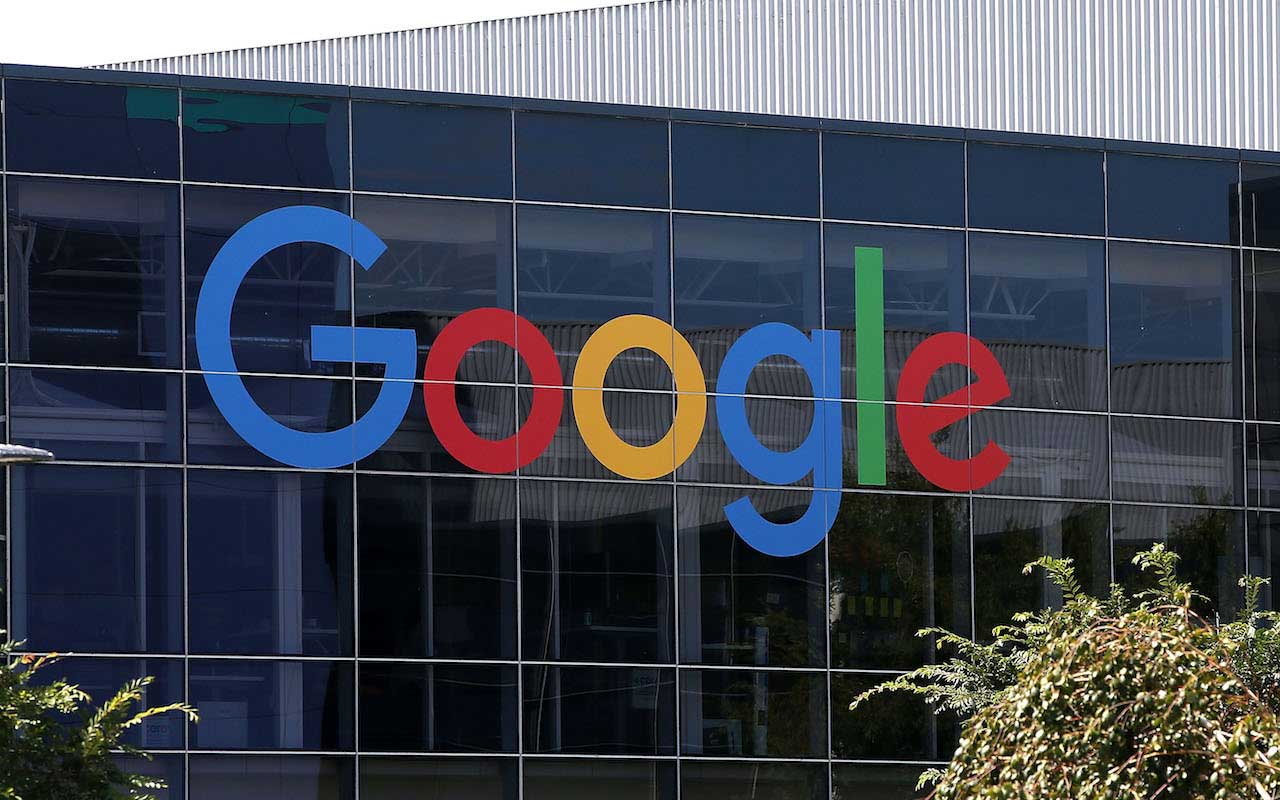Google Privacy Settlements: How Much Will Users Get?
Google has finalized or agreed to four massive settlements in the past year, addressing alleged violations of consumer data laws.


Profit and prosper with the best of Kiplinger's advice on investing, taxes, retirement, personal finance and much more. Delivered daily. Enter your email in the box and click Sign Me Up.
You are now subscribed
Your newsletter sign-up was successful
Want to add more newsletters?

Delivered daily
Kiplinger Today
Profit and prosper with the best of Kiplinger's advice on investing, taxes, retirement, personal finance and much more delivered daily. Smart money moves start here.

Sent five days a week
Kiplinger A Step Ahead
Get practical help to make better financial decisions in your everyday life, from spending to savings on top deals.

Delivered daily
Kiplinger Closing Bell
Get today's biggest financial and investing headlines delivered to your inbox every day the U.S. stock market is open.

Sent twice a week
Kiplinger Adviser Intel
Financial pros across the country share best practices and fresh tactics to preserve and grow your wealth.

Delivered weekly
Kiplinger Tax Tips
Trim your federal and state tax bills with practical tax-planning and tax-cutting strategies.

Sent twice a week
Kiplinger Retirement Tips
Your twice-a-week guide to planning and enjoying a financially secure and richly rewarding retirement

Sent bimonthly.
Kiplinger Adviser Angle
Insights for advisers, wealth managers and other financial professionals.

Sent twice a week
Kiplinger Investing Weekly
Your twice-a-week roundup of promising stocks, funds, companies and industries you should consider, ones you should avoid, and why.

Sent weekly for six weeks
Kiplinger Invest for Retirement
Your step-by-step six-part series on how to invest for retirement, from devising a successful strategy to exactly which investments to choose.
In the past year, Google has settled a series of sweeping privacy lawsuits, resulting in nearly $600 million in settlement payout agreements to states and affected users. So what happened with each lawsuit, and what can you expect if Google violated your privacy?
Google's $23M search privacy settlement
On January 5, 2023, Google agreed to pay $23 million to resolve a consolidated, California-based class-action lawsuit, according to Bloomberg Law. The court case has been winding its way through litigation for 12 years.
Claimants have until July 31st, 2023 to submit a claim to their share of the settlement fund, according to the settlement website. Money reports that "anyone who executed a Google search between Oct. 25, 2006, and Sept. 30, 2013, and clicked on a link in the search results can collect part of the settlement."
From just $107.88 $24.99 for Kiplinger Personal Finance
Become a smarter, better informed investor. Subscribe from just $107.88 $24.99, plus get up to 4 Special Issues

Sign up for Kiplinger’s Free Newsletters
Profit and prosper with the best of expert advice on investing, taxes, retirement, personal finance and more - straight to your e-mail.
Profit and prosper with the best of expert advice - straight to your e-mail.
If you believe you fit the class member criteria, you can register here. The settlement website will then send you a class member ID via email. Then you submit a claim by providing your new ID number and other contact information. Money also notes that applicants could get an average of $7.70 per claim, owing to the massive number of potential claimants and the relatively smaller settlement size.
The settlement website lists a final approval hearing date on October 12, 2023 at 9AM PDT, while warning that any appeals must first be resolved in favor of the settlement before claimants see any payouts.
Plaintiffs claim that Google’s search engine shared their personal search queries with third-party advertisers without obtaining their permission, revealing personal information about the users in the process. The lawsuit also claims that marketers paid Google to learn more about specific search-related factors that drove a customer to click on a specific page. The suit alleged that Google’s data-sharing practices violated the federal Stored Communications Act and state laws in California.
On top of the proposed $23M payout fund for affected Google users, the settlement also requires Google to provide extra disclosures to users about search term-sharing practices.
Ilinois settlement: $100M
On September 28th, 2022 a Cook County, Illinois judge approved a final $100M settlement in a lawsuit alleging Google’s face grouping tool, which sorts faces on Google Photos by similarity, violated Illinois’ biometric privacy law, according to the Chicago Tribune. Illinois law requires companies to obtain users’ consent before collecting and saving biometric information. Furthermore, the law allows state residents to collect civil penalties of up to $5,000 per violation, compounded by the total number of claimants affected.
According to NBC5 Chicago, 687,484 Illinois residents who submitted valid claims will receive somewhere between $95-$96 each. This won't be as high as expected last year, thanks to an unexpected surge in applicants.
Cook County Circuit Court Judge Anna Loftus recently certified the process of verifying claims and concluded that the class had been fully determined. The settlement website lists June 7, 2023 as the date the settlement administrator would begin distributing payouts to certified claimants. So active class members should have seen their payout checks arrive over the past two weeks.
Arizona AG settlement: $85M
On October 4th, Arizona Attorney General Mark Brnovich reached an $85 million settlement to resolve a lawsuit that accused Google of secretly obtaining user data to sell advertisements, according to the Associated Press (AP).
Arizona prosecutors had been investigating Google since 2018 when AP revealed that Google was misleading consumers about its practices with user tracking and location data. Brnovich’s office filed the current lawsuit against Google in May 2020.
Google users in Arizona will not receive any direct cash payouts from this settlement. Instead, Brnovich’s office announced the settlement directs the bulk of the money to the Arizona general fund, which will require legislative appropriation before it can be spent.
Additionally, $5 million will be set aside for “attorney general education programs.”
40-state AG settlement: $391.5M
In November 2022, Google reached a record $391.5 million privacy settlement with a 40-state coalition of Attorneys General, as per the New York Times. The settlement resolved charges that Google convinced users they disabled their location tracking, but instead, Google kept collecting that information.
The attorneys general said Google violated each of the states’ consumer protection laws, by continuing to gather and store a detailed map of users’ movements through services like search, maps and apps that connect to Wi-Fi and cellular phone towers.
According to the office of Oregon AG Ellen Rosenblum, the agreement was the biggest internet privacy settlement by U.S. states.
On top of paying out nearly $400 million to the state general funds of the 40 participating states, Google has agreed to significantly improve its location tracking disclosures and user controls starting in 2023, including:
- Show additional information to users whenever they turn a location-related account setting “on” or “off”;
- Make key information about location tracking unavoidable for users (i.e., not hidden); and
- Give users detailed information about the types of location data Google collects and how it’s used at an enhanced “Location Technologies” webpage.
It's unclear if any of the 40 participating states will set up settlement funds for their affected Google-using residents to claim a cash payout.
Related Content
Profit and prosper with the best of Kiplinger's advice on investing, taxes, retirement, personal finance and much more. Delivered daily. Enter your email in the box and click Sign Me Up.

Ben Demers manages digital content and engagement at Kiplinger, informing readers through a range of personal finance articles, e-newsletters, social media, syndicated content, and videos. He is passionate about helping people lead their best lives through sound financial behavior, particularly saving money at home and avoiding scams and identity theft. Ben graduated with an M.P.S. from Georgetown University and a B.A. from Vassar College. He joined Kiplinger in May 2017.
-
 Dow Adds 1,206 Points to Top 50,000: Stock Market Today
Dow Adds 1,206 Points to Top 50,000: Stock Market TodayThe S&P 500 and Nasdaq also had strong finishes to a volatile week, with beaten-down tech stocks outperforming.
-
 Ask the Tax Editor: Federal Income Tax Deductions
Ask the Tax Editor: Federal Income Tax DeductionsAsk the Editor In this week's Ask the Editor Q&A, Joy Taylor answers questions on federal income tax deductions
-
 States With No-Fault Car Insurance Laws (and How No-Fault Car Insurance Works)
States With No-Fault Car Insurance Laws (and How No-Fault Car Insurance Works)A breakdown of the confusing rules around no-fault car insurance in every state where it exists.